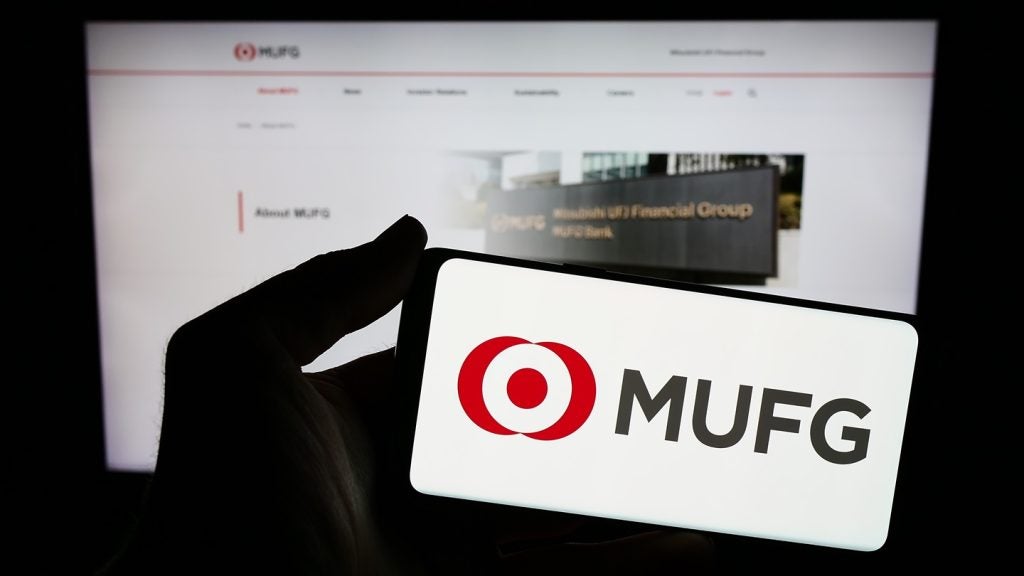private banks beset by huge subprime exposures, other wealth firms
to which clients feel attracted are recording high asset inflows.
Deutsche Bank’s Private Wealth Management operation falls within
the latter category, its top man in Germany, Joachim
Häger, contends.
Deutsche Bank’s Private Wealth Management (PWM) operation in
Germany, managing about E52 billion ($81 billion) in assets for
more than 5,000 families, selected institutional clients and
intermediaries, ranks as the country’s largest private bank.
Within PWM, there’s growing confidence that, as its rivals try to
prevent subprime damage in investment banking and proprietary
trading infecting the private banking side, it is well equipped to
win significant market share.
“Deutsche Bank’s brand and reputation is an incredible USP [unique
selling proposition] when it comes to serving private clients,”
says Joachim Häger, head of PWM Germany. “I am very confident we
will even exceed the strength in client acquisition we have been
demonstrating over the last five years. We had an extremely
promising start to 2008 with high inflows and… we feel that wealthy
clients are increasingly considering moving further assets to
PWM.”
Talking to PBI, Häger notes that PWM, founded in 2002 to spearhead
the high-end wealth business, has achieved double-digit growth over
the past five years, clearly exceeding expansion in the overall
German high net worth (HNW) marketplace – a mature wealth sector
that is one of the slower-growing in Europe. Still, Germany remains
the most important onshore market in Europe.
HNW growth
How well do you really know your competitors?
Access the most comprehensive Company Profiles on the market, powered by GlobalData. Save hours of research. Gain competitive edge.

Thank you!
Your download email will arrive shortly
Not ready to buy yet? Download a free sample
We are confident about the unique quality of our Company Profiles. However, we want you to make the most beneficial decision for your business, so we offer a free sample that you can download by submitting the below form
By GlobalDataThe country’s HNW population grew only 0.9 percent in 2005, one of
the slowest growth rates in the world that year, according to the
Merrill Lynch/Capgemini wealth report. But that stepped up to 4.1
percent in 2006, helped by strong stock markets.
Unlike UBS, Merrill Lynch and Citigroup, Deutsche Bank has so far
largely escaped the subprime crisis. The bank has released expected
first-quarter write-downs of $4 billion due to what it says are
“significantly more challenging” market conditions triggered by the
subprime collapse.
“In the difficult markets we are all facing, the PWM business model
is proving robust,” says Häger. “It is based much more on advisory
fees, rather than transaction fees, and we operate independently
from the product placement side.”
By far the majority of actively promoted client investments come
from external third-party suppliers, even though PWM can draw on
Deutsche’s extensive investment banking activities and DWS funds
operation for a wide range of products.
The Deutsche banker adds: “We have established processes to ensure
that PWM clients really get the best product in the German market,
i.e. we benchmark our funds, certificates, etc. with respect to
their structures, pricing, etc. Our colleagues in investment
banking and other divisions know that PWM clients are
sophisticated, demanding semi-institutional clients and that the
relationship of trust we have built up with these clients is a very
important success factor. I do not know any investment banking
colleague who believes that it is possible to ‘dump’
products.”
In Germany, private banking – like retail banking – is highly
fragmented, due to a largely over-banked economy where big listed
banks like Deutsche compete with a high number of regional private
banks as well as savings banks. In addition, the German HNW market
has been very attractive for foreign banks over the last three to
five years, resulting in an increasing number of advisor networks
and addition of new staff after big investments, Häger
notes..
First-class address
While Deutsche is Germany’s biggest private bank, its domestic
market share of high and ultra high net worth clients is just under
10 percent.
Says Häger, “We are confident we can go above that figure. We are a
first-class address and the Deutsche brand is very strong which is
a big advantage. ”
In the last two years, PWM has seen increasing numbers of clients
migrating away from other banks. One factor is that the HNW clients
are becoming increasingly discriminating, looking for better
service and investment products apart from the more recent subprime
worries among clients.
While he won’t name the banks losing market share, Häger says that
specialist niche banks and large all-service players are generally
still holding up. “It’s the players in the middle that are seeing
the impact of competitive pressures.”
Has Deutsche been caught up in the upheavals sparked by the German
tax investigations into charitable foundations in Liechtenstein,
now the centre of worldwide investigation for suspected evasion
abuses?
Häger will only say: “We focus on establishing and advising
foundations in Germany, mostly charitable organisations. They are
subject to German law, which we strictly adhere to.”
Some analysts believe Deutsche is very well-placed to win new
business as scared German clients play it safe and repatriate money
back home from offshore havens, make appropriate arrangements with
the German tax authorities and invest with reputable banks.
“Our current focus is certainly on the large number of prospective
clients in our home market and not on potential money flows coming
back into the country following the tax affairs,” Häger
insists.
A major element of Deutsche’s strategy meanwhile is to increase its
penetration of the UHNW market. As a rough indication, for Deutsche
the threshold for HNW clients start at about E2 million of net
assets while the ultra-wealthy commence at E25 million, and where
Deutsche offers a full range of family office services and
sophisticated solutions.
But Häger is not a believer in a rigorous client segmentation
approach, declaring: “You cannot put clients into boxes.
“Segmentation by assets under management for the client can’t be
the only criteria. It should give you an indication that every day
you should be doing best for the client, via an ongoing dialogue
and you are confident your specific coverage model is correctly
positioned.”
Ultra-wealthy
To back this up, relationship managers at Deutsche PWM are
restricted to each servicing between 40 to 50 clients or families,
“unlike the 100 or more you see with other banks”.
Adds Häger: “This year, we have considerably improved our offering
for ultra-HNW clients by bringing all relevant teams together. We
have created what is definitely the biggest and fastest growing
virtual family office. We hired Thomas Borghardt from UBS Sauerborn
to run this operation and significantly expand our business with
UHNW clients.
To increase its client base among the UHNW clients, PWM has just
recruited Gregor Broschinski, former head of private banking for
Bremer Landesbank, where he successfully built up their private
banking franchise.
“Gregor Broschinski will take on the new role of a senior private
banker and will cover wealthy families. He and our other senior
private bankers will play an extremely important part in
positioning Deutsche Bank PWM in our core markets and winning
market share by giving prospective UHNW clients access to the best
resources and thinking.”
Häger says PWM already has a strong market position with UHNW
clients in Germany and “more than 50 percent of our growth is in
the UHNW client segment”. These clients benefit fully from
Deutsche’s own “One Bank” approach through the interaction with the
group’s corporate and investment bank division.
“Within PWM, we have a unique service and solutions offering, which
includes two independent family offices to which we can refer our
clients, a trust team, about 30 wealth planners, dedicated real
estate and art advisory teams as well as an asset engineering team
for specific wealth concepts.”
All PWM’s capabilities are reflected in the four building blocks of
its dedicated value proposition for UHNW clients, he notes.
These comprise independent advice on structuring and managing the
total family wealth; specific, innovative and exclusive investment
solutions, typically as private placements; management of the
client’s portfolio to optimise risk/return and Deutsche Bank as an
efficient transaction and booking platform with high-quality
reporting.
Wealthy families
Finally, Deutsche has additionally moved to cultivate the wealthy
family, with specialist unit Wilhelm von Finck – an operation that
is “a gem”, declares Häger.
“It operates independently from Deutsche Bank, with full discretion
with regard to its client structure, and develops specific
solutions for very large families. Wilhelm von Finck is highly
focused and performs excellently in a number of areas, forming a
key element of our service for our most demanding clients.”
Von Finck’s portfolio management has a strong track record,
offering best-in-class reporting quality and, most importantly, is
known for excellent risk management and control, he adds.
So what makes Häger so confident about the future? Deutsche Bank
“advises more than 100,000 clients in all aspects of wealth
management worldwide”, he declares. In pursuit of more growth,
Deutsche’s Private & Business Clients division recently
acquired norisbank and Berliner Bank at home, while PWM acquired
wealth manager Tilney to expand its UK onshore business.
“We are already present in all relevant wealth markets and I am
confident that we can continue to grow organically as we have done
very successfully over the last five years,” Häger says.
And he adds, with a smile, “What symbolises our strength and
thereby our future success is that we are training quite a
substantial part of the industry. Up to 20 percent of bankers
working in some banks in Germany started out with Deutsche
Bank.”
German regulator suspends private bank
German securities market regulator BaFin has suspended the
operations of a small private bank, Weserbank AG, and is to start
insolvency proceedings. It marks the first European banking
fatality since the onset of the global credit crunch.
Weserbank is based in Bremerhaven and was established in 1912.
BaFin said that after the bank was unable to cover its operational
costs, it had requested a moratorium to secure the remaining assets
of the lender.
Weserbank had total assets of around E120.4 million ($187.5
million) at the end of 2007 and about E25.9 million in liabilities
to customers. Attempts to sell Weserbank failed and falls in its
investments “in floating rate notes and sovereign risks” led to the
closure.
According to the bank’s website, it currently “looks after several
thousand private and corporate customers”.
Besides current and deposit accounts, it offers private clients the
whole range of traditional banking services.
With Weserbank Financial Planning, it develops jointly with clients
“a long-term asset strategy, which takes account of changes in
circumstance such as education, starting a family, retirement, and
also accidents and death”.








